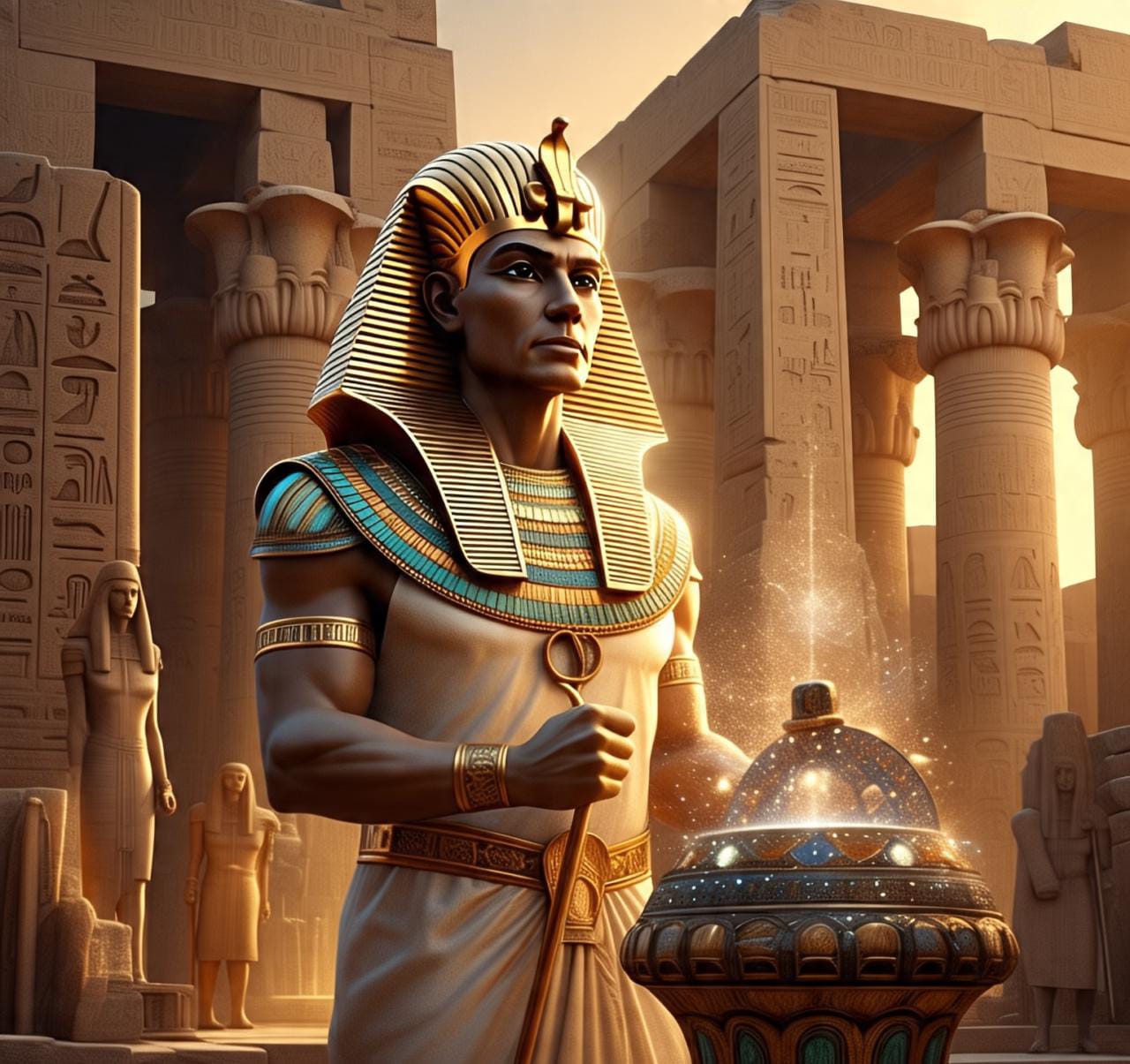A Mysterious Tale of Egypt: A Pharaoh’s Clever Curiosity

Not all stories begin in the heavens or deep in the desert. Some begin with a question whispered into the wind.
“Why should only gods hold all the secrets?”
That question came from Pharaoh Setka, a ruler unlike any other. He wasn’t just strong or rich—he was curious. Curious enough to dare something unthinkable: tricking the gods themselves.
A Mind Too Curious
Setka wasn’t a cruel king. In fact, his people loved him. He built schools, helped farmers, and made sure every child learned to read the stars. But inside his heart, there lived a bold hunger—he wanted to know what only the gods knew.
Every night, he would look at the sky and wonder:
“Why do the stars move like that? What makes time pass? How do the gods decide our fate?”
His priests warned him, “Great Pharaoh, some knowledge belongs only to the heavens. Mortals must not chase it.”
But Setka wasn’t like other mortals.
The Forbidden Gathering
One dusty scroll hidden deep in the palace library mentioned a secret: once every thousand years, the gods of Egypt meet in the Temple of the Hidden Sky to speak of destiny, stars, and time.
No mortal had ever entered that place.
But Setka had studied magic. He knew old chants, and he had power over shadows. One moonless night, when the stars blinked a strange pattern, he transformed into a sliver of smoke and slipped into the sacred temple.
There they were: Ra, Isis, Thoth, Osiris, and more—gods of sun, magic, wisdom, and life. Golden thrones floated in the air. Starlight danced on the walls. The gods spoke in voices that echoed like music and thunder.
Setka listened, hidden behind a pillar of stardust.
Caught in the Act
But no secret can stay hidden from Thoth, the god of wisdom.
“I feel a heartbeat not born of god or spirit,” he said.
Isis closed her eyes and pointed. “There. A shadow not made by light.”
And Ra, with eyes that blazed like fire, struck the wall with a sunbeam.
Setka was revealed.
The gods rose. Ra’s voice thundered, “A mortal spying on the Council of the Gods?”
Setka stepped forward, shaking, but still bold. “I only wanted to understand. I seek no harm—only knowledge.”
A Chance to Prove Worth
Isis, ever gentle, looked into Setka’s heart. “He does not carry greed. Only longing to learn.”
Ra grumbled, “Let him be tested. If he fails, he returns as dust.”
Setka nodded. “I accept.”
Three Riddles of the Divine
First Riddle – Thoth:
"I am not alive, but I grow. I do not breathe, but I need air. I have no mouth, but I can drown. What am I?"
Setka thought. “Fire.”
“Correct.”
Second Riddle – Isis:
"I fly forever, but I have no wings. I can never be caught. What am I?"
Setka smiled. “Time.”
“Correct.”
Third Riddle – Ra:
"Tell me the one truth all beings fear, yet all must face."
Setka closed his eyes. “Death.”
Ra looked at him long and hard. Then he nodded.
The Gift of the Stars
The gods were impressed. Ra opened his palm and offered Setka a glowing scroll.
“This holds the true name of the stars,” he said. “With it, you may read the heavens and understand time. But use it wisely. If you try to change fate, you will forget all you’ve learned.”
Setka accepted with a bow. “I will use it only for good.”
A Different Kind of King
Back in his kingdom, Setka became a new man. He never used his gift for power. Instead, he taught others to read the stars, to plant by the moon, and to sail by the sky.
He never bragged about meeting the gods.
He never tricked the heavens again.
But every so often, at midnight, he’d glance at the stars—and smile.
What We Learn from Setka
- Curiosity is powerful—but must be guided by humility.
- True wisdom comes not from tricks, but from understanding.
- Even gods respect those who seek knowledge for good.
- The stars don’t just shine for the gods—they shine for those brave enough to wonder.